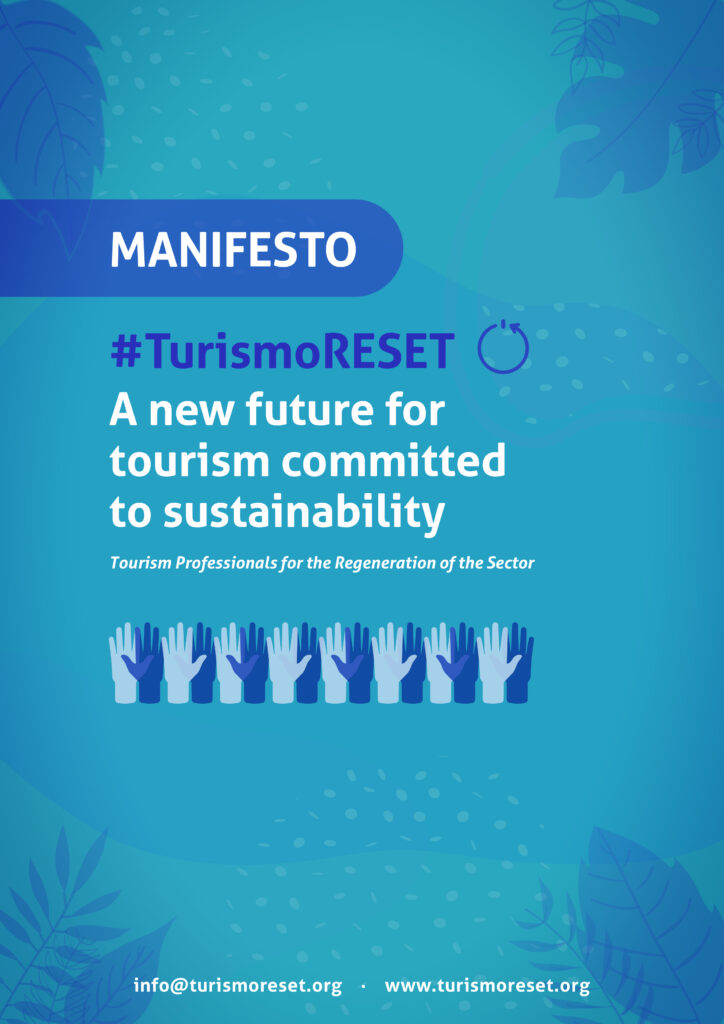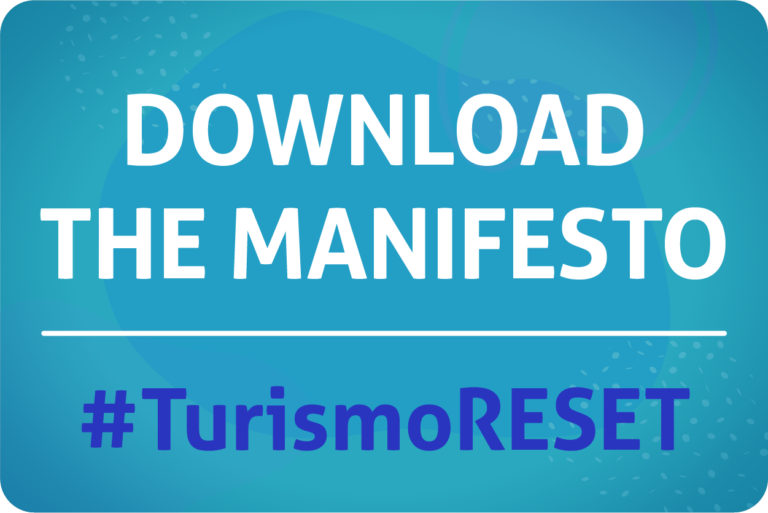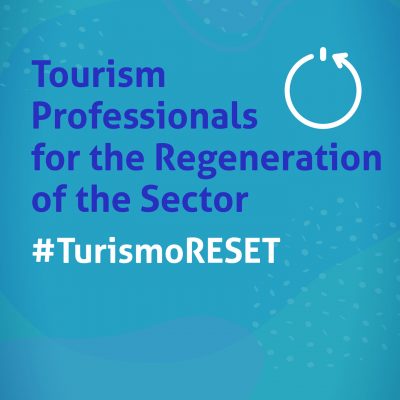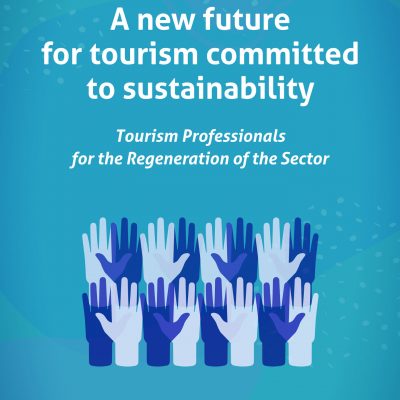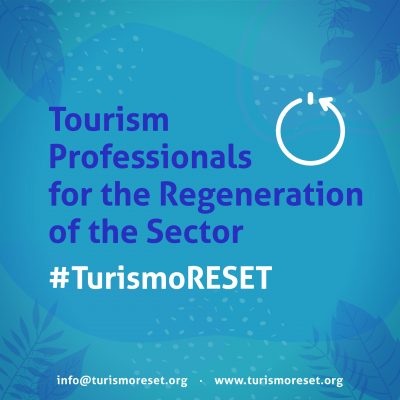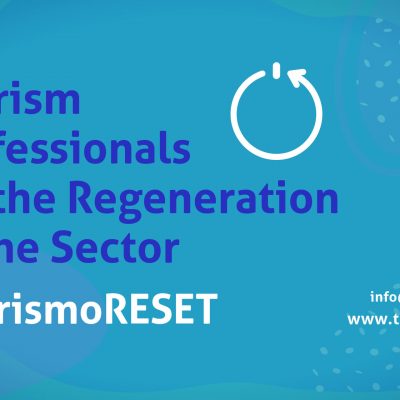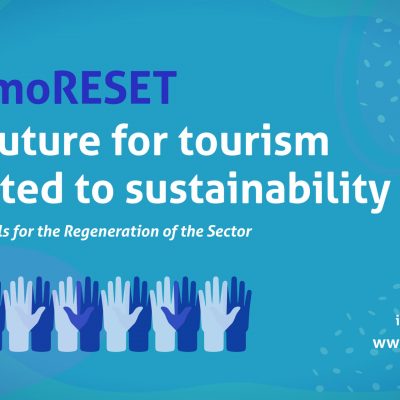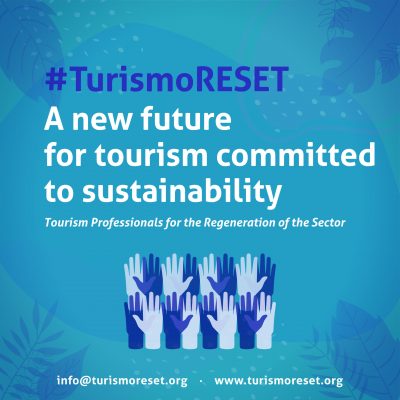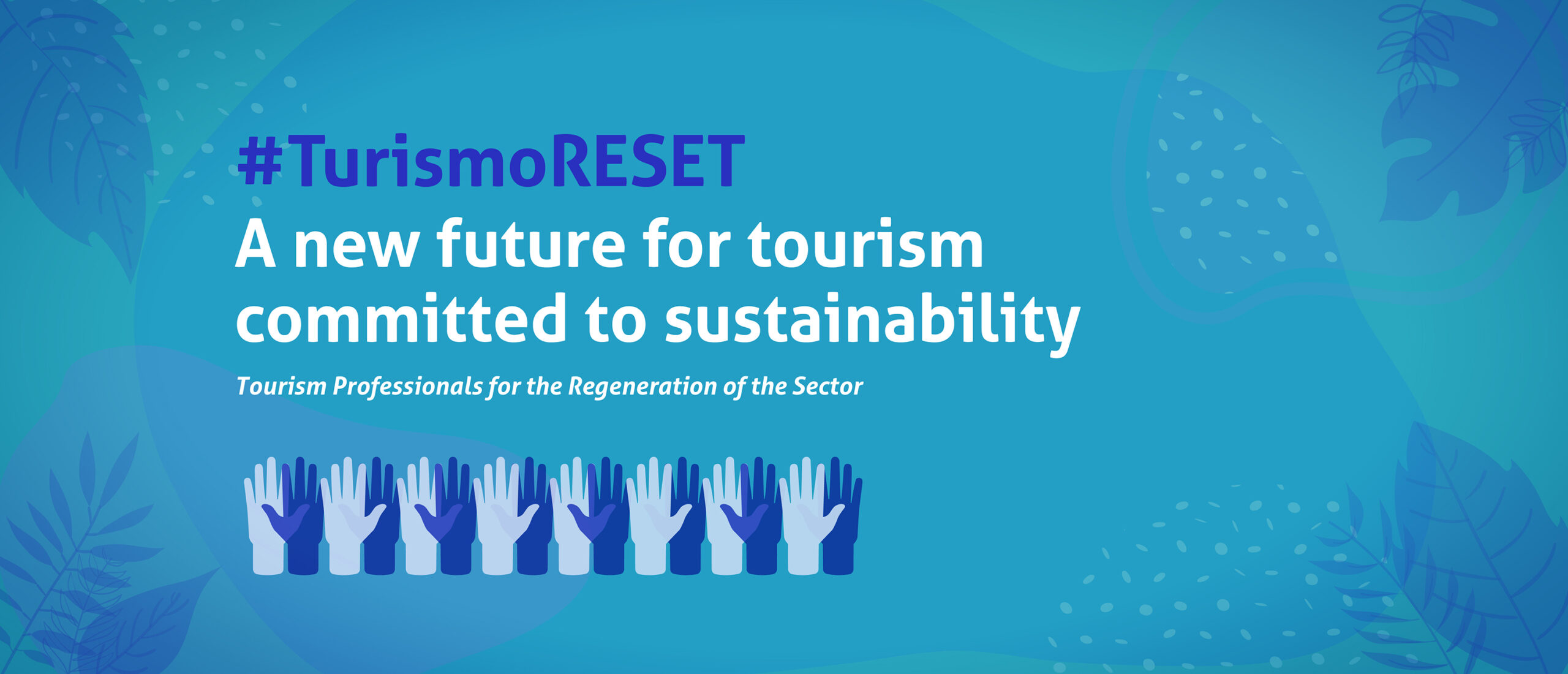
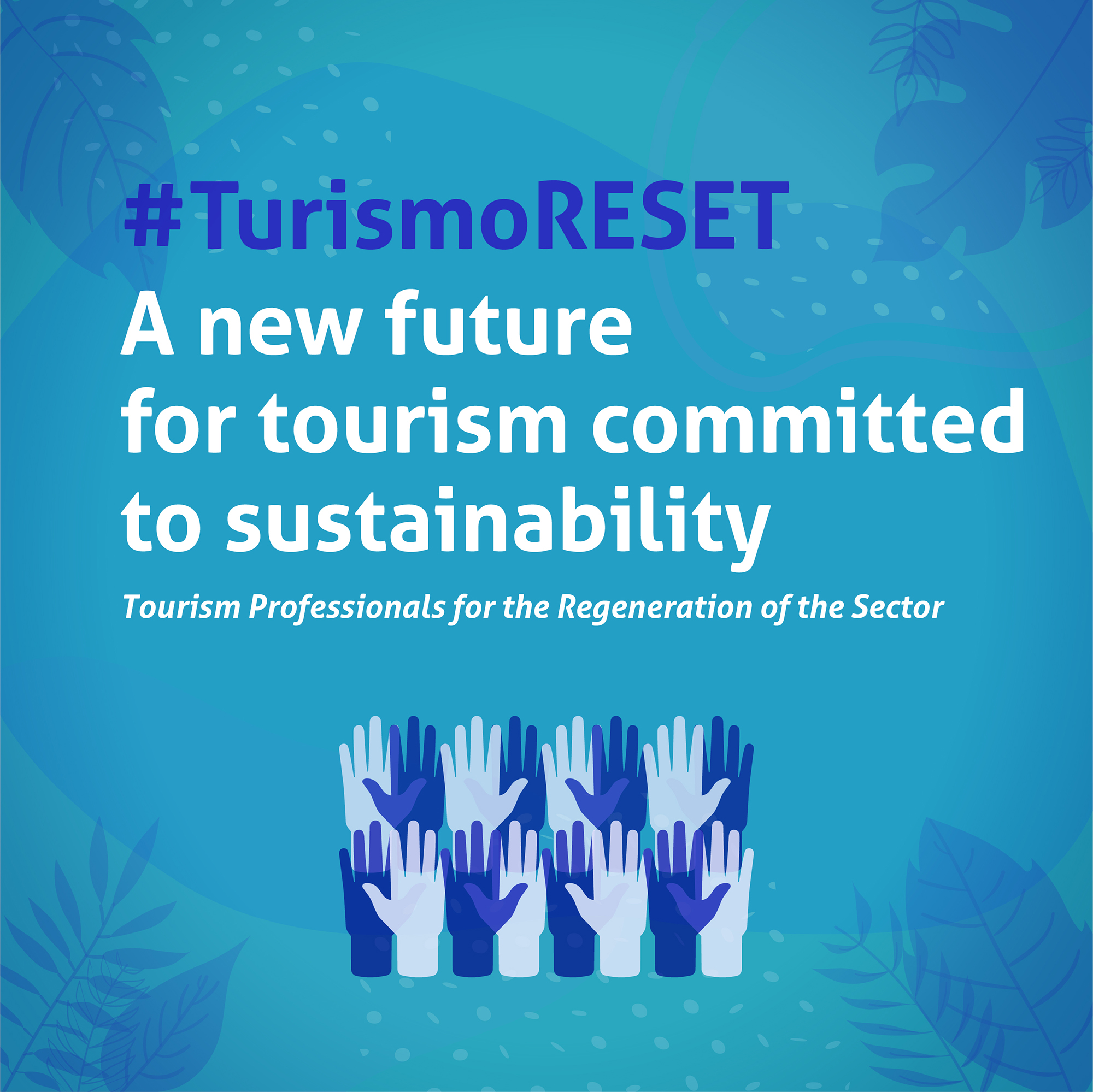
Manifesto for the regeneration of the tourism sector through a socially equitable, environmentally respectful, and economically sustainable model.
#TurismoReset is a community that brings together a wide variety of professionals from the tourism sector, as a sample of the transversal nature of the industry, united under the common goal of rethinking and working for a new tourism model which is truly sustainable and responsible with the capabilities of responding to the global challenges faced not only by the sector, but society as a whole.
We are facing a situation in which unity becomes essential. At the same time, there seems to be a lack of diversity when it comes to visions and opinions in the public debate in relation to the best way to overcome this crisis. In this context of uncertainty, we need not only to take into account the short-term and conjuncture related actions channelled into returning to the previous situation as soon as possible; it is also essential to have a broader look, a necessary long-term vision that helps understand and correct the mistakes perpetrated in many destinations. In this sense, #TurismoReset has become a space for collaboration and dialogue, strengthening relationships between stakeholders and working collectively in the search for regenerative solutions in the industry.
The current COVID-19 health crisis is a turning point in our lives that will affect some activities more than others. The perception that tourism will be one of the last sectors to recover seems widespread and, in the face of such a difficult situation, it is more necessary than ever to identify opportunities. Despite the fact that Sustainable Development Goals (SDGs) and sustainability in general are present in the debate, it is necessary to go a step further by proposing concrete ideas and actions, aimed at Public Administrations, socioeconomic stakeholders, local communities and visitors.
Tourism must take a proactive role in this crisis by becoming a leading agent of change. The sector is crying out for the following:
- Catalysing socioeconomic development, considering not only economic aspects but a social, educational or cultural development indicators.
- Promoting gender equality and decent working conditions serving as an example to other sectors of the economy.
- Generating improvements in people’s quality of life, based on respect and the conservation of environmental resources, reducing their contribution to climate change.
- Preserving and enhancing the cultural identity of each territory.
- Embracing governance as the foundation of territorial management, with local communities at the core of planning.
Right now, we must ask ourselves whether we want the same exponential growth in which we were immersed, where the quantitative dimension has been imposed on the qualitative one again. We must take advantage of this period of low activity to understand the implications of an unceasing increase in traveller numbers, without addressing the effects on the environment as well as on local communities and their quality of life. It is essential to introduce into the debate concepts such as carrying capacity and growth limits, so that environmental impacts are minimized, while maximizing the social profitability of the model.
Therefore, in this period of urgency and crisis, this community of tourism professionals for the regeneration of the sector considers it necessary to always speak from a position of sincerity and conviction We believe that it is necessary to give a new direction to the future of the tourism industry, based on the principles of the model above all on the needs of local communities and respect for the environment.
To this end, and as a result of a process of collective reflection, we have drawn up the following list of priority actions, a starting point intended to serve as a roadmap for professionals and administrations, which will eventually be developed through multidisciplinary working groups to be set up:
1. A CATALYST FOR SOCIOECONOMIC DEVELOPMENT
- Prioritise tourism models that fully take into account the wellbeing of people, local communities and visitors, and that create fair and equitable opportunities for socioeconomic development for local communities.
- Support job creation and entrepreneurship from local and proximity consumption, so that tourism really becomes a catalyst for development and prosperity for communities.
- Promote a change in behaviour tourist consumption and mobility patterns to adapt them to a more local economy, where quality prevails over quantity, with a special emphasis on avoiding the overuse of resources and unwanted situations of overtourism.
- Reject and condemn those practices involving the exploitation and abuse of people and animals, encouraging equality and respect for human rights, particularly within the most vulnerable population groups.
- Put emphasis on analysing the evolution of the sector with qualitative parameters above quantitative ones, fomenting social measurement indicators complementary to Gross Domestic Product (GDP)
2. GENDER EQUALITY AND DECENT WORK
- Integrate a gender perspective into tourism planning and public policies, with the aim of promoting effective equal opportunities within the sector.
- Carry out actions to promote leadership and promotion of entrepreneurship among women and the implementation of best practices to balance and reconcile personal and professional life, both for men and women, within human resources policies.
- Ensure inclusivity, social, and accessible tourism. Guarantee the right for everyone to enjoy tourism and decent employment, creating opportunities for vulnerable groups.
- Foster employment policies that promote fair working conditions and facilitate human resources training and research in sustainability and innovation.
- Enhance an ambitious Corporate Social Responsibility strategy within institutions and companies, constantly updating the fulfilment of the commitments that are acquired.
3. ENVIRONMENTAL PROTECTION AND CLIMATE CHANGE
- Empower local production and consumption in the supply chain of tourist destinations through “zero kilometre” products.
- Increase awareness of destinations by developing campaigns of education for sustainability adapted to the local needs of each destination and addressed for a wide range of actors (tourism operators, local population and tourists).
- Reduce the use of plastic throughout the global tourism value chain (hotels, restaurants, transports, tour guiding …)
- Spread all information associated to CO2 emissions generated for all tourism-related services.
- Encourage actions to protect natural resources and conserve biodiversity.
4. CULTURAL IDENTITY OF THE TERRITORY
- Enhance tourism models that generate added value based on the cultural identity of destinations.
- Create spaces of interaction and integration between visitors and host communities, in order to avoid loss of social identity and tourismphobia.
- Promote travel experiences where all interactions with local communities are part of the travellers’ life experience.
- Educate, raise awareness, and sensitise tourists so that they are aware of the cultural footprint they leave in destinations and their communities, and recognise it to be as important as the environmental one.
- Involve all tourism stakeholders and figures in the destination value chain in the conservation of both tangible and intangible cultural heritage as a sign of identity, enhancing its conservation and respectful dissemination.
5. TOURISM GOVERNANCE
- Integrate an open participation approach as the central axis of the strategic planning and territorial development so that local communities can decide who they want to be and lead their own future, letting them thrive.
- Establish permanent organisations representatives of the tourism sector and local society, as public bodies for consultation and decision-making.
- Encourage the creation of public-private partnership institutions helping to develop and implement cooperation projects.
- Enable formal information tools that promote the exchange of knowledge between professionals, adapted in form and language to the wide range of professional profiles related to tourism.
- Create open data networks where administrations, companies, universities and independent professionals can dump and share the data generated anonymously.
Support this manifesto and join this initiative
Error: Contact form not found.
Individual supports
Affiliated entities
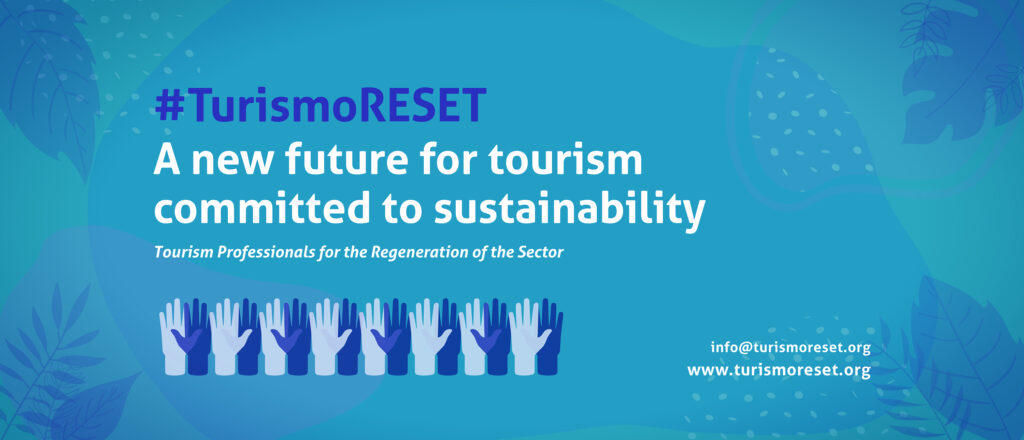
DRAFTING TEAM:
- Alicia Fajardo. | Better Tourism
- Daniel Gutiérrez. | Diagnosis Cultural
- Jaime Gutiérrez. | BRUMA
- Javier Tejera. | Ecotouristing
- Raquel Huete. | Universidad de Alicante
- Raúl García. | Aprende de Turismo
